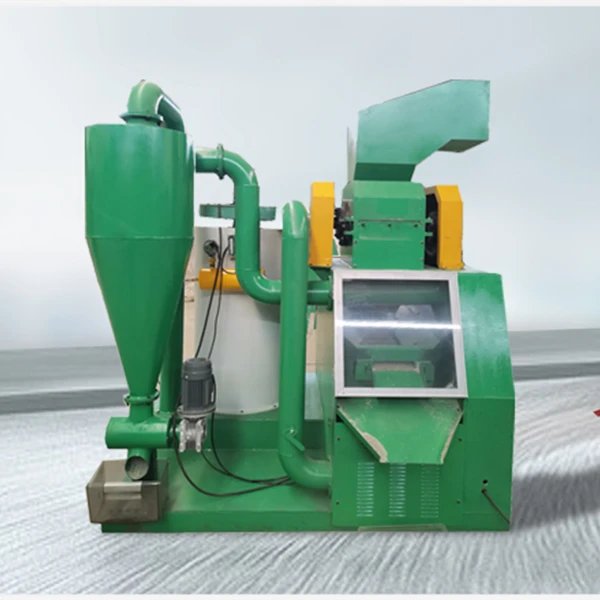

Dec . 16, 2024 15:15 Back to list
The Importance of Plastic and Metal Shredders in Waste Management
In our increasingly industrialized world, the challenge of waste management has become more pressing than ever. As we generate vast amounts of plastic and metal waste, effective recycling and waste reduction techniques are vital for environmental sustainability. One significant innovation that serves this purpose is the plastic and metal shredder, a crucial tool in recycling operations and waste processing facilities.
Plastic and metal shredders are designed to break down large pieces of these materials into smaller, more manageable sizes. This process not only makes it easier to transport and store waste but also plays a fundamental role in the recycling process. By reducing the size of plastic and metal products, shredders facilitate the separation of materials, ensuring that they can be processed more efficiently in recycling plants.
The primary function of a shredder is to cut large materials into smaller pieces, which are then classified into different grades for recycling. In the case of plastics, various types, including polyethylene, polypropylene, and polystyrene, can be processed. For metals, common materials include aluminum and steel. Different types of shredders operate based on the specific needs of the waste material, utilizing various blade designs, motor sizes, and processing capacities. This versatility allows facilities to handle diverse waste streams efficiently.
The environmental benefits of using plastic and metal shredders cannot be overstated
. Shredding these materials before recycling significantly reduces the volume of waste that ends up in landfills. This is critical, as landfills are not only a waste of resources but also contribute to greenhouse gas emissions and other forms of pollution. By enabling higher rates of recycling, shredders help conserve natural resources, reduce energy consumption, and minimize carbon footprints associated with the production of new materials.
Furthermore, shredded plastic and metal materials are much easier to transport to recycling facilities. The reduced volume means using fewer vehicles, which not only lowers transportation costs but also decreases traffic congestion and emissions caused by fuel consumption. This efficient waste management cycle promotes a more sustainable economy by maximizing resource recovery while minimizing environmental impacts.
In addition to their environmental applications, shredders also play a vital role in sectors such as manufacturing and automotive recycling. In manufacturing, production waste can be shredded and reprocessed, allowing companies to utilize materials that would otherwise be discarded. In the automotive industry, old vehicles can be shredded to separate metals, plastics, rubber, and glass, enabling a more efficient recycling process for the various components found in automobiles.
The advancement of technology has further enhanced the efficiency and effectiveness of shredders. Modern shredding machines are equipped with advanced features such as programmable controls, automated sorting systems, and energy-efficient motors. These innovations not only improve the shredding process but also allow operators to monitor performance in real time, optimizing operations for better results.
Despite their many benefits, it is essential that plastic and metal shredders are operated by trained professionals who understand the intricacies of recycling and waste management. Proper maintenance of these machines is also critical to ensure their longevity and effectiveness. Regular inspections and servicing can prevent breakdowns and enhance the overall performance of the shredding process.
In conclusion, the role of plastic and metal shredders in waste management is invaluable. By transforming large waste materials into manageable forms, shredders facilitate the recycling process, conserve resources, and contribute to a more sustainable future. As the global community continues to grapple with waste management challenges, investing in advanced shredding technology is a crucial step toward achieving environmental sustainability and promoting a circular economy.
Latest news
Troubleshooting Common Eddy Separator Problems
NewsJul.04,2025
The Role of Metal Recycling Plants in Circular Economy
NewsJul.04,2025
The Impact of Recycling Line Pickers on Waste Management Costs
NewsJul.04,2025
Safety Features Every Metal Shredder Should Have
NewsJul.04,2025
How Industrial Shredders Improve Waste Management Systems
NewsJul.04,2025
How Cable Granulators Contribute to Sustainable Recycling
NewsJul.04,2025